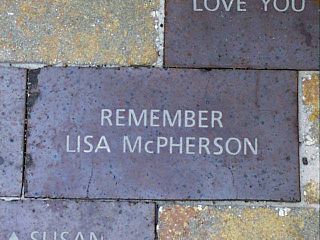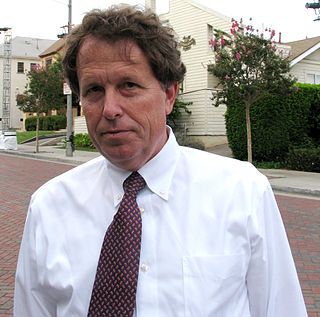
Since its inception in 1954, the Church of Scientology has been involved in a number of controversies, including its stance on psychiatry, Scientology's legitimacy as a religion, the Church's aggressive attitude in dealing with its perceived enemies and critics, allegations of mistreatment of members, and predatory financial practices; for example, the high cost of religious training:191 and perceived exploitative practices. When mainstream media outlets have reported alleged abuses, representatives of the church have tended to deny such allegations.

David Miscavige is an American Scientologist who is serving as the second and current leader of the Church of Scientology. His official title within the organization is Chairman of the Board of the Religious Technology Center. RTC is a corporation that controls the trademarks and copyrights of Dianetics and Scientology. He is also referred to within the Scientology organization as "DM", "COB", and "Captain of the Sea Org".

Stephen A. Kent is a professor in the Department of Sociology at the University of Alberta in Edmonton, Alberta, Canada. He researches new religious movements (NRMs), and has published research on several such groups including the Children of God, the Church of Scientology, and other NRMs operating in Canada.

The Church of Scientology is a group of interconnected corporate entities and other organizations devoted to the practice, administration and dissemination of Scientology, which is variously defined as a cult, a business, or a new religious movement. The movement has been the subject of a number of controversies, and the Church of Scientology has been described by government inquiries, international parliamentary bodies, scholars, law lords, and numerous superior court judgements as both a dangerous cult and a manipulative profit-making business.

The Fort Harrison Hotel has served as the main building of the Flag Land Base, the Church of Scientology's campus in Clearwater, Florida. It is owned and operated by the Flag Service Organization.
Tilman Hausherr is a German citizen living in Berlin, Germany. Hausherr is well known among critics of Scientology for his frequent Usenet posts and for maintaining a website critical of Scientology. Hausherr is also the author of a software utility, Xenu's Link Sleuth, which was praised in a 2002 PC Magazine article covering 70 web builder utilities.

Tory Christman is an American critic of Scientology and former member of the organization. Originally brought up a Catholic, Christman turned to Scientology after being introduced to the book Dianetics: The Modern Science of Mental Health authored by Scientology founder L. Ron Hubbard while staying with her parents in Chicago. She identified with concepts described in the book including the idea of attaining the Scientology state of clear, and became a member of the organization in 1969. She hitchhiked from Chicago to Los Angeles, in order to begin the process of studying Scientology, and initially felt that it helped improve her life. In 1972, she joined the core group of staff members within Scientology called the Sea Org. After being a member of the Scientology organization for ten years, Christman reached the spiritual Operating Thetan level of OT III, and learned the story of Xenu. She subsequently rose to a higher Operating Thetan level of OT VII, the second-highest within the organization. Her medical condition of epilepsy caused difficulty while in Scientology, as the organization did not approve of taking medication in order to manage her condition.
Lynsey Marie Bartilson is an American former actress, dancer, and singer. She is best known for playing Lily Finnerty on the Fox/WB sitcom Grounded for Life, and voicing Tuesday X for the Nickelodeon TV series, The X's.

Freedom is a magazine published by the Church of Scientology since 1968. The magazine describes its focus as "Investigative Reporting in the Public Interest." A frequent topic is psychiatry, which Scientology strongly opposes.

This is a Timeline of Scientology and its forerunner Dianetics, particularly its foundation and development by author L. Ron Hubbard as well as general publications, articles, books and other milestones.

Mark Bunker is an American politician, broadcast journalist, videographer and documentary filmmaker. He won a Regional Emmy Award in 2006 from the Pacific Southwest Emmy Awards division of the National Academy of Television Arts and Sciences. In 2020, Bunker was elected city councilman for Clearwater Florida's 2nd district, and was selected as vice-mayor on April 4, 2023.

The Lisa McPherson Trust was an organisation created in 1999 by Bob Minton. The trust was named after Lisa McPherson, a Scientology member who died in 1995 after being in the Church of Scientology’s care for 17 days. Their stated goal was to "expose the deceptive and abusive practices of Scientology and help those victimized by [the Church of Scientology]."

Scientology is a set of beliefs and practices invented by the American author L. Ron Hubbard, and an associated movement. It is variously defined as a cult, a business, a religion, or a scam. Hubbard initially developed a set of ideas that he called Dianetics, which he represented as a form of therapy. An organization that he established in 1950 to promote it went bankrupt, and Hubbard lost the rights to his book Dianetics in 1952. He then recharacterized his ideas as a religion, likely for tax purposes, and renamed them Scientology. By 1954, he had regained the rights to Dianetics and founded the Church of Scientology, which remains the largest organization promoting Scientology. There are practitioners independent of the Church, in what is referred to as the Free Zone. Estimates put the number of Scientologists at under 40,000 worldwide.

Project Chanology was a protest movement against the practices of the Church of Scientology by members of Anonymous, a leaderless Internet-based group. "Chanology" is a combination of "4chan" and "Scientology". The project was started in response to the Church of Scientology's attempts to remove material from a highly publicized interview with Scientologist Tom Cruise from the Internet in January 2008.

Karin Pouw is a French-born American official within the Church of Scientology International. Since 1993, she has held the position of Director of Public Affairs in the Office of Special Affairs (OSA) and serves as one of Scientology's international spokespersons.
Kurt Weiland is a native of Austria and an executive in the Church of Scientology International. He is director of external affairs for the Church of Scientology's Office of Special Affairs, and Scientology's vice president of communications. He is a member of the organization's board of directors, and handles government, legal and public affairs for Scientology. He has often represented Scientology to the press as a media spokesman. Weiland works out of the Church of Scientology's offices in Los Angeles, California.

The Church of Scientology has operated in Germany since 1970. German authorities estimate that there are 3,500 active Scientologists in Germany as of 2019. The Church of Scientology gives a membership figure of around 12,000. The Church of Scientology has encountered particular antagonism from the German press and government and occupies a precarious legal, social, and cultural position in Germany.

Kendrick Lichty Moxon is an American Scientology official and an attorney with the law firm Moxon & Kobrin. He practices in Los Angeles, California, and is a lead counsel for the Church of Scientology. Moxon received a B.A. from American University in 1972, and a J.D. degree from George Mason University in 1981. He was admitted to the Washington, D.C., bar association in 1984, and the State Bar of California in 1987. Moxon's early work for the Church of Scientology involved legal affairs, and he also held the title of "reverend". He worked out of the Scientology intelligence agency known as the Guardian's Office (GO), and was named as an unindicted co-conspirator after the Federal Bureau of Investigation's investigation into criminal activities by Scientology operatives called "Operation Snow White". An evidence stipulation in the case signed by both parties stated he had provided false handwriting samples to the FBI; Moxon has since said that he did not "knowingly supply" false handwriting samples.

The Church of Scientology network operates as a multinational conglomerate of companies with personnel, executives, organizational charts, chains of command, policies and orders.
Religious Technology Center is the most powerful executive organization within the Scientology empire, and its current chairman, David Miscavige, is widely recognized as the effective head of the church.
Scientology in Egypt has no official presence because non-monotheistic religions are not recognized in Egypt. The Church of Scientology has claimed that Egypt is one of the "countries in which Dianetics and Scientology services are ministered", but there are no known membership statistics available. In 2002, two Scientologists were detained by Egyptian authorities under the charges of "contempt of religion". As of 2010, books authored by Scientology founder L. Ron Hubbard and printed by the Church of Scientology for its front groups were being distributed in Egypt—even bearing the approval of Al-Azhar, the highest Sunni learning institution in the Muslim world. Narconon, an organization that promotes Hubbard's drug abuse treatment, has a branch in Ismailia Governorate called "Narconon Egypt".












